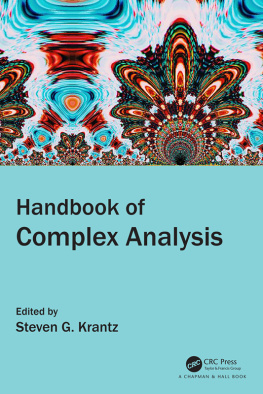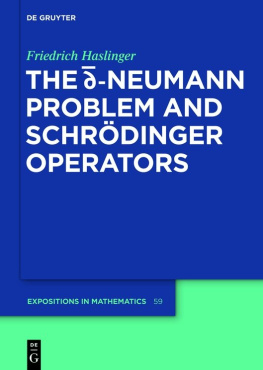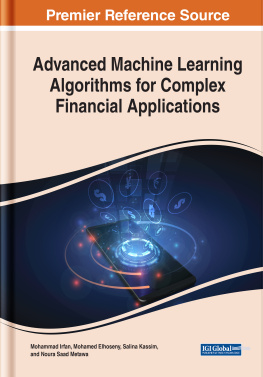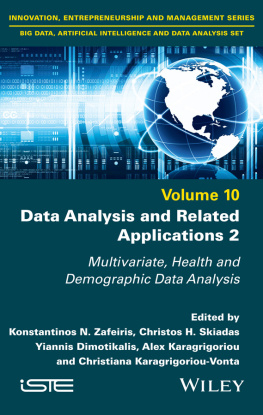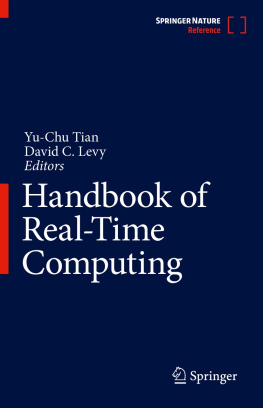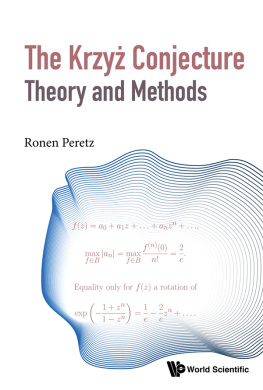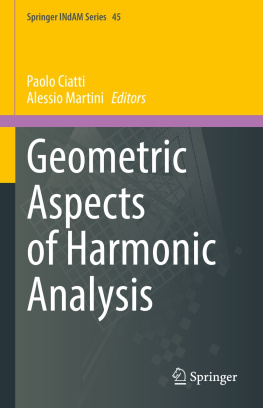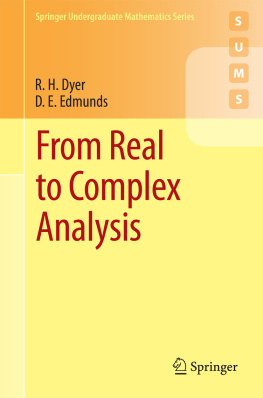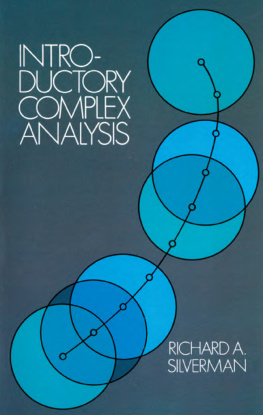Contents
Steven R. Bell and Luis Reyna de la Torre
David Barrett and Michael Bolt
Joseph A. Cima
Buma Fridman and Daowei Ma
Siqi Fu
Emily J. Gullerud and James S. Walker
Marek Jarnicki and Peter Pflug
Dmitri Khavinson
Christer Oscar Kiselman
Steven G. Krantz
Bingyuan Liu
T. H.Marshall and Gaven Martin
Vicentiu Radulescu and Monica Rosiu

Handbook of Complex Analysis
First edition published 2022
by CRC Press
6000 Broken Sound Parkway NW, Suite 300, Boca Raton, FL 33487-2742
and by CRC Press
4 Park Square, Milton Park, Abingdon, Oxon, OX14 4RN
2022 Taylor & Francis Group, LLC
CRC Press is an imprint of Taylor & Francis Group, LLC
Reasonable efforts have been made to publish reliable data and information, but the author and publisher cannot assume responsibility for the validity of all materials or the consequences of their use. The authors and publishers have attempted to trace the copyright holders of all material reproduced in this publication and apologize to copyright holders if permission to publish in this form has not been obtained. If any copyright material has not been acknowledged, please write and let us know so we may rectify it in any future reprint.
Except as permitted under U.S. Copyright Law, no part of this book may be reprinted, reproduced, transmitted, or utilized in any form by any electronic, mechanical, or other means, now known or hereafter invented, including photocopying, microfilming, and recording, or in any information storage or retrieval system, without written permission from the publishers.
For permission to photocopy or use material electronically from this work, access
Trademark notice: Product or corporate names may be trademarks or registered trademarks and are used only for identification and explanation without intent to infringe.
ISBN: 9781138064041 (hbk)
ISBN: 9781032202105 (pbk)
ISBN: 9781315160658 (ebk)
DOI: 10.1201/9781315160658
Typeset in font CMR10
by KnowledgeWorks Global Ltd.
Preface
Despite being nearly 500 years old, with work dating back to Cardano, Euler, Gauss, Cauchy, Riemann, and many others, the subject of complex analysis is still today a vital and active part of the mathematical sciences. In addition to all the exciting theoretical work being done today, there are important applications to physics, engineering, cosmology, and other aspects of technology. Many of the world's most distinguished and accomplished mathematicians conduct research in complex analysis. Several recent Fields Medalists study complex analysis.
Although a venerable subject, complex analysis continues to grow and prosper. New directions of development in the subject include dynamical systems, quasiconformal mappings, harmonic measure, automorphism groups, and the list can go on at some length. One of the sources of strength for the subject is its interaction with diverse parts of mathematics, including differential geometry, partial differential equations, functional analysis, algebra, combinatorics, and many other aspects of the subject.
This Handbook of Complex Analysis presents contributed chapters by several distinguished mathematicians, including a new generation of researchers. More than a compilation of recent results, this book offers a stepping stone for students to gain entry into the professional life of complex analysis. The essays presented here are all accessible to graduate students but will also be of considerable interest to the seasoned mathematician. Classes and seminars, of course, play a role in the maturation process that we are describing. But more is needed for the unilateral study. This handbook will play such a role.
As noted, this book will serve as a reference and a source of inspiration for mature mathematiciansboth specialists in complex analysis and others who want to become acquainted with current modes of thought and investigation. And it will help the neophyte to become inured in the subject matter.
The chapters in this volume are authored by leading experts in the subject area, also gifted expositors. They are carefully crafted presentations of diverse aspects of the field, formulated for a broad and diverse audience. The editor intends this volume to be a touchstone for current ideas in the broadly construed subject area of complex analysis. It should enrich the literature and point to some new directions. The point here is not to present an epitaph for complex analysis but rather to provide an entree to a whole new life. We anticipate that the reader of this volume will be eager to explore other parts of complex analysis literature and to begin to play an active role in complex analysis research life.
Editor
Steven G. Krantz is a professor of mathematics at Washington University in St. Louis. He has previously taught at UCLA, Princeton University, and Pennsylvania State University. He has written more than 130 books and more than 250 scholarly papers and is the founding editor of the Journal of Geometric Analysis. An AMS Fellow, Dr. Krantz has been a recipient of the Chauvenet Prize, Beckenbach Book Award, and Kemper Prize. He received a PhD from Princeton University.
List of Contributors
David Barrett
University of Michigan
Steven R. Bell
Purdue University
Michael Bolt
Calvin Univeristy
Joseph A. Cima
University of North Carolina
Buma Fridman
Wichita State University
Siqi Fu
Rutgers University
Emily J. Gullerud
University of Minnesota
Dmitri Khavinson
University of South Florida
Christer Kiselman
Uppsala University
Steven G. Krantz
Washington University
Bingyuan Liu
University of California Riverside
Daowei Ma
Wichita State University
T. H. Marshall
Massey University
Gaven Martin
Massey University
Vicentiu Radulescu
University of Craiova
Luis Reyna de la Torre
IUPUI
James S. Walker
University of Wisconsin-Eau Claire
Something about Poisson and Dirichlet
Steven R. Bell and Luis Reyna de la Torre
DOI: 10.1201/9781315160658-1
CONTENTS
1.1Mathematical DNA
For reasons that have always been mysterious to the first author, he has often found himself thinking about the Dirichlet problem in the plane and has fought urges to look for explicit formulas for the Poisson kernels associated to various kinds of multiply connected domains, especially quadrature domains. He has obsessed about solutions to the Dirichlet problem with rational boundary data (see [] for an expository treatment of some of these results.) After thinking about the Dirichlet problem his entire adult life, he can solve it a different way every day of the week. He recently looked up his mathematical lineage at the Math Genealogy Project and found a possible explanation for his obsession. He is a direct mathematical descendent of both Poisson and Dirichlet. These problems are in his blood!
The authors worked together on a summer research project at Purdue University in 2018 to find a particularly elegant and simple way to approach these problems. We want to demonstrate here how Poisson and Dirichlet might solve their famous problems today if they had lived another 200 years and developed a major lazy streak. We assume that our reader has seen a traditional approach to this subject in a course on complex analysis and so will appreciate the novelty and smooth sailing of the line of reasoning here, but just in case the reader hasnt, we have tried to present the material in a way that can be understood assuming only a background in basic analysis.

